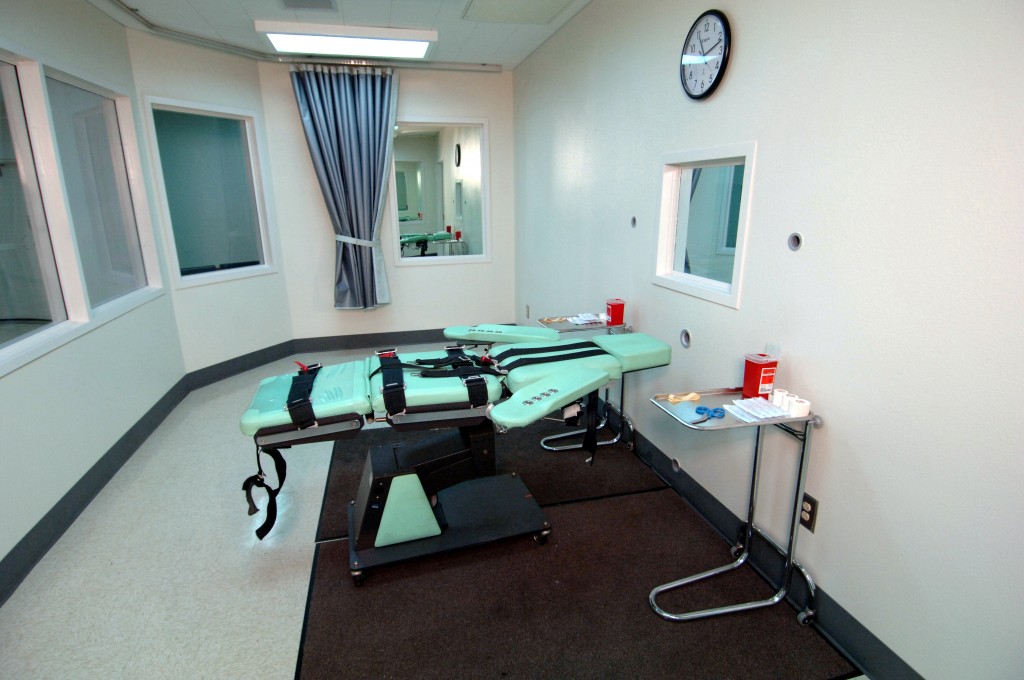The National Association of Evangelicals has released a statement that changes – somewhat – its formerly pro-death-sentence stance, recognizing that many of the millions of members of “more than 45,000 local churches from nearly 40 different denominations”* it represents are still in favor of it while at the same time recognizing that the justice system is imperfect, as evidenced in
eyewitness error, coerced confessions, prosecutorial misconduct, racial disparities, incompetent counsel, inadequate instruction to juries, judges who override juries that do not vote for the death penalty, and improper sentencing of those who lack the mental capacity to understand their crime.
The board of directors of the National Association of Evangelicals approved a resolution that changes its 1973 resolution that favored the death penalty, the group announced Monday.
While the new resolution, which is now the standing policy of the NAE, does not reverse its earlier position, it acknowledges evangelicals who oppose the death penalty.
Jonathan Merritt responds to the statement in Religion New Service (“Thank God: Evangelicals shrink back from support of death penalty“):
Publicly acknowledging disagreement on a matter isn’t exactly visionary. But it is a step in the right direction. Before now, the organization’s standing resolution on the matter supported capital punishment as a deterrent for violent criminals and called on lawmakers to reinstatement it in places where it had been outlawed. The NAE’s capital punishment resolution is a hopeful sign that evangelicals are catching up to the rest of America.
According to statistics cited by the Post (and also by the Christian Science Monitor in its coverage here),
A sizable majority of white evangelical Protestants (71 percent) support the death penalty, according to a March 2015 survey from the Pew Research Center. That support, however, has dropped some from 77 percent in 2011. Overall, the 2015 survey suggests 56 percent of Americans support the death penalty, a drop from 78 percent in 1996.
Evangelicals have served as an important constituency for some political leaders. And as an umbrella group for many evangelical denominations, the NAE can serve as a barometer for where evangelicals stand on some issues.
The NAE stops short of calling the death penalty immoral or unjust in and of itself, or addressing questions of mercy or forgiveness:
As evangelicals, we believe that moral revulsion or distaste for the death penalty is not a sufficient reason to oppose it. But leaders from various parts of the evangelical family have made a biblical and theological case either against the death penalty or against its continued use in a society where biblical standards of justice are difficult to reach. In Mosaic Law, standards of evidence were stringent, requiring a minimum of two eyewitnesses who were willing to stake their own lives on the truthfulness of their testimony and who would initiate the execution by “casting the first stone.” Circumstantial evidence was not permitted. The contemporary American system is unlikely to reach such standards of evidence, and given the utter seriousness of capital crimes, the alarming frequency of post-conviction exonerations leads to calls for radical reform.
The entire statement can be found here.

